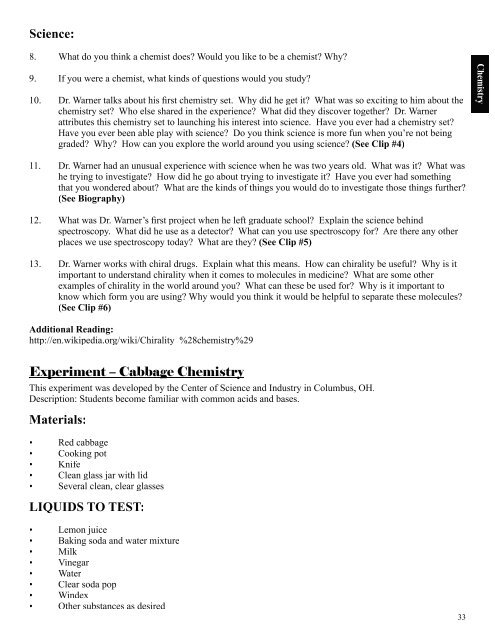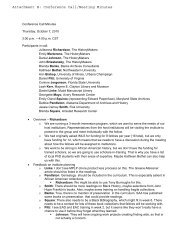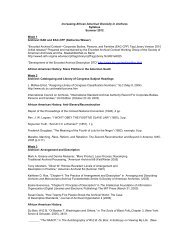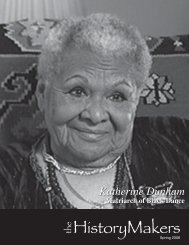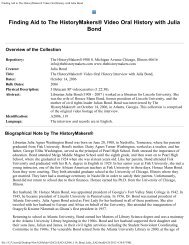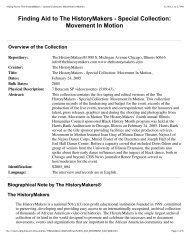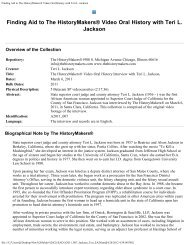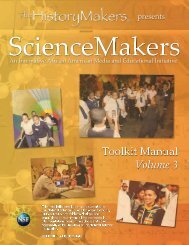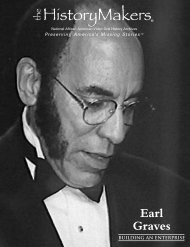ScienceMakers Toolkit Manual - The History Makers
ScienceMakers Toolkit Manual - The History Makers
ScienceMakers Toolkit Manual - The History Makers
You also want an ePaper? Increase the reach of your titles
YUMPU automatically turns print PDFs into web optimized ePapers that Google loves.
Science:<br />
8. What do you think a chemist does? Would you like to be a chemist? Why?<br />
9. If you were a chemist, what kinds of questions would you study?<br />
10. Dr. Warner talks about his fi rst chemistry set. Why did he get it? What was so exciting to him about the<br />
chemistry set? Who else shared in the experience? What did they discover together? Dr. Warner<br />
attributes this chemistry set to launching his interest into science. Have you ever had a chemistry set?<br />
Have you ever been able play with science? Do you think science is more fun when you’re not being<br />
graded? Why? How can you explore the world around you using science? (See Clip #4)<br />
11. Dr. Warner had an unusual experience with science when he was two years old. What was it? What was<br />
he trying to investigate? How did he go about trying to investigate it? Have you ever had something<br />
that you wondered about? What are the kinds of things you would do to investigate those things further?<br />
(See Biography)<br />
12. What was Dr. Warner’s fi rst project when he left graduate school? Explain the science behind<br />
spectroscopy. What did he use as a detector? What can you use spectroscopy for? Are there any other<br />
places we use spectroscopy today? What are they? (See Clip #5)<br />
13. Dr. Warner works with chiral drugs. Explain what this means. How can chirality be useful? Why is it<br />
important to understand chirality when it comes to molecules in medicine? What are some other<br />
examples of chirality in the world around you? What can these be used for? Why is it important to<br />
know which form you are using? Why would you think it would be helpful to separate these molecules?<br />
(See Clip #6)<br />
Additional Reading:<br />
http://en.wikipedia.org/wiki/Chirality_%28chemistry%29<br />
Experiment – Cabbage Chemistry<br />
This experiment was developed by the Center of Science and Industry in Columbus, OH.<br />
Description: Students become familiar with common acids and bases.<br />
Materials:<br />
• Red cabbage<br />
• Cooking pot<br />
• Knife<br />
• Clean glass jar with lid<br />
• Several clean, clear glasses<br />
LIQUIDS TO TEST:<br />
• Lemon juice<br />
• Baking soda and water mixture<br />
• Milk<br />
• Vinegar<br />
• Water<br />
• Clear soda pop<br />
• Windex<br />
• Other substances as desired<br />
33<br />
Chemistry


